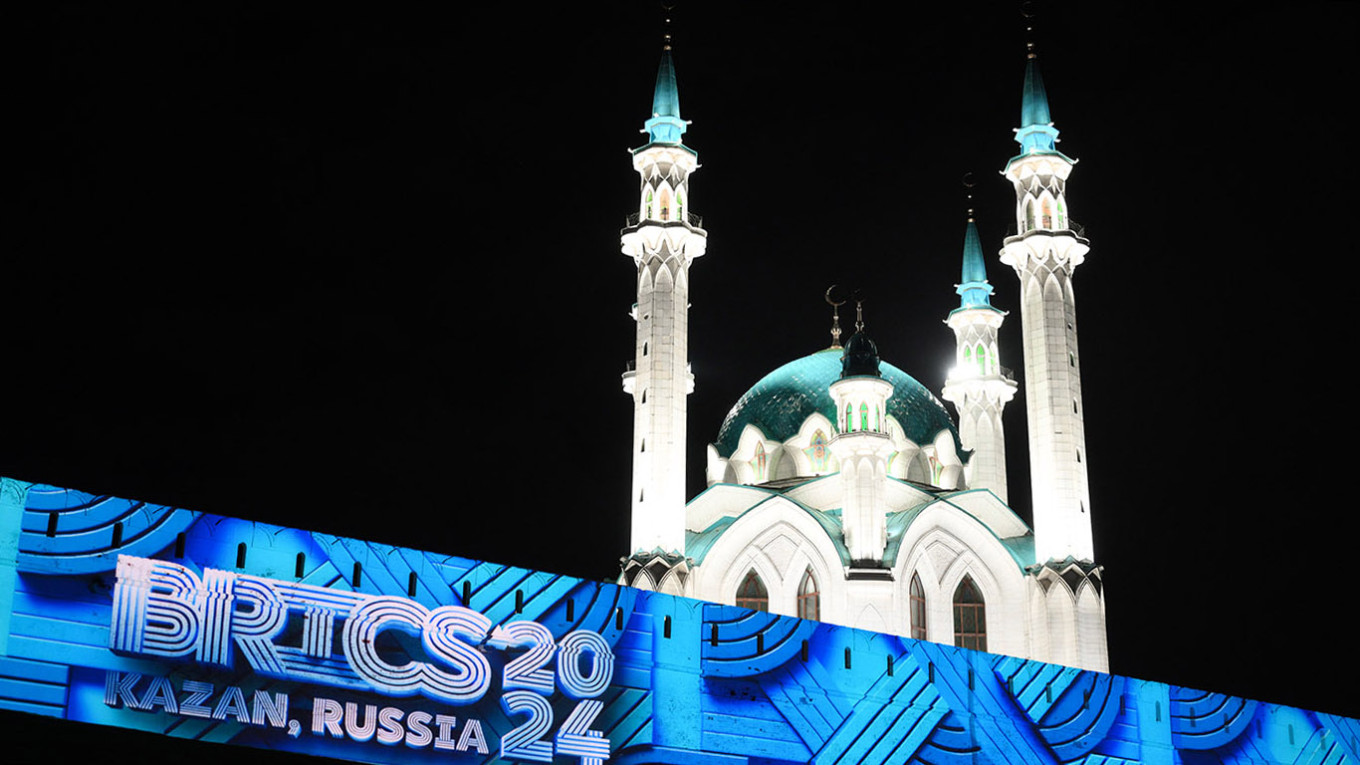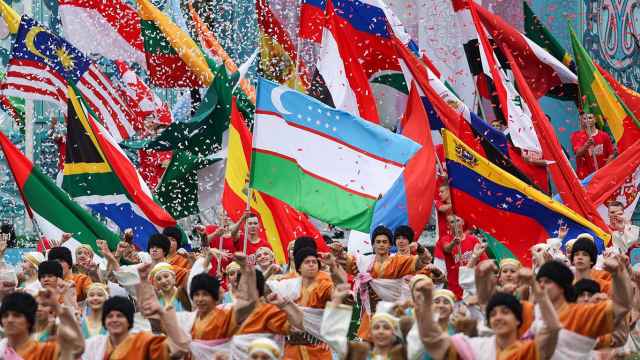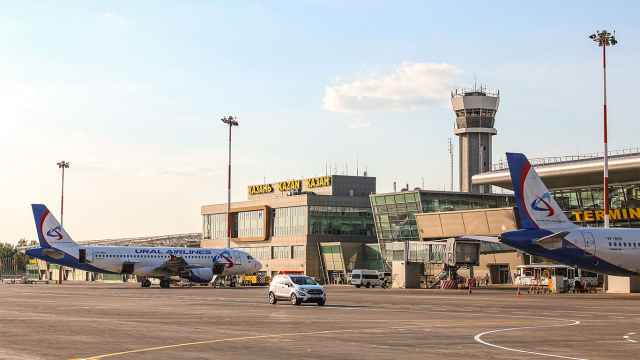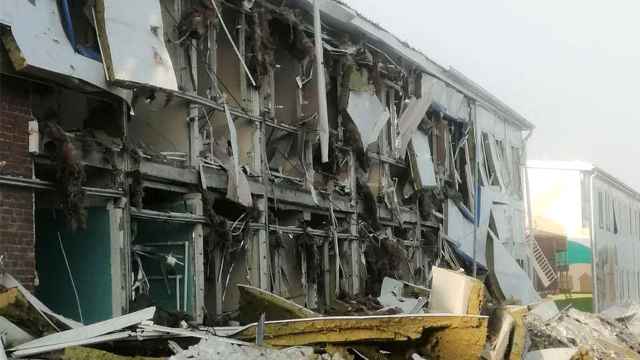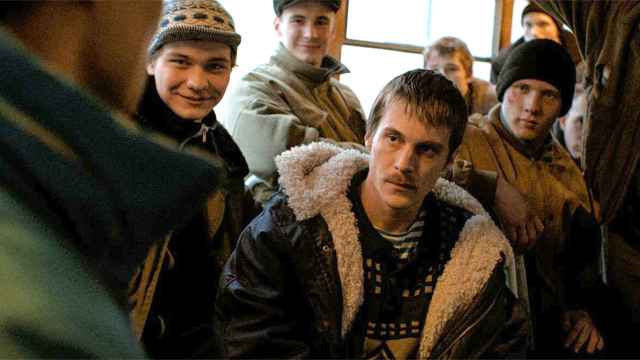When the annual BRICS economic bloc summit opens Tuesday in Kazan, the capital of Russia’s republic of Tatarstan, Moscow will be pulling out all the stops to project the alliance as a rapidly expanding geopolitical counterweight to the West.
President Vladimir Putin’s aide Yuri Ushakov has already hailed the summit as “the largest foreign policy event ever held” in Russia, while independent analysts underscored its importance for potentially reshaping the existing global order.
Established in 2009 by Brazil, Russia, India and China, the bloc was expanded a year later with the addition of South Africa. The alliance was further expanded into BRICS+ last year with Egypt, Ethiopia, Iran and the United Arab Emirates joining as permanent members. Saudi Arabia and Argentina were also invited to join in the first major expansion, but neither proceeded with formalizing their membership.
Despite the reluctance of some major players to join the alliance, BRICS+ in its current configuration accounts for more than 37% of the world GDP — more than twice that of the European Union — as well as over 41% of the global population.
Though Saudi Crown Prince Mohammed bin Salman will not travel to Kazan for the three-day summit, there will be no shortage of high-profile guests: as of last week, 24 state leaders were expected to attend, according to Ushakov.
In addition to heads of BRICS+ member states, the summit will be attended by UN Secretary-General Antonio Guterres and Turkish President Recep Tayyip Erdogan, the only leader of a NATO country to attend.
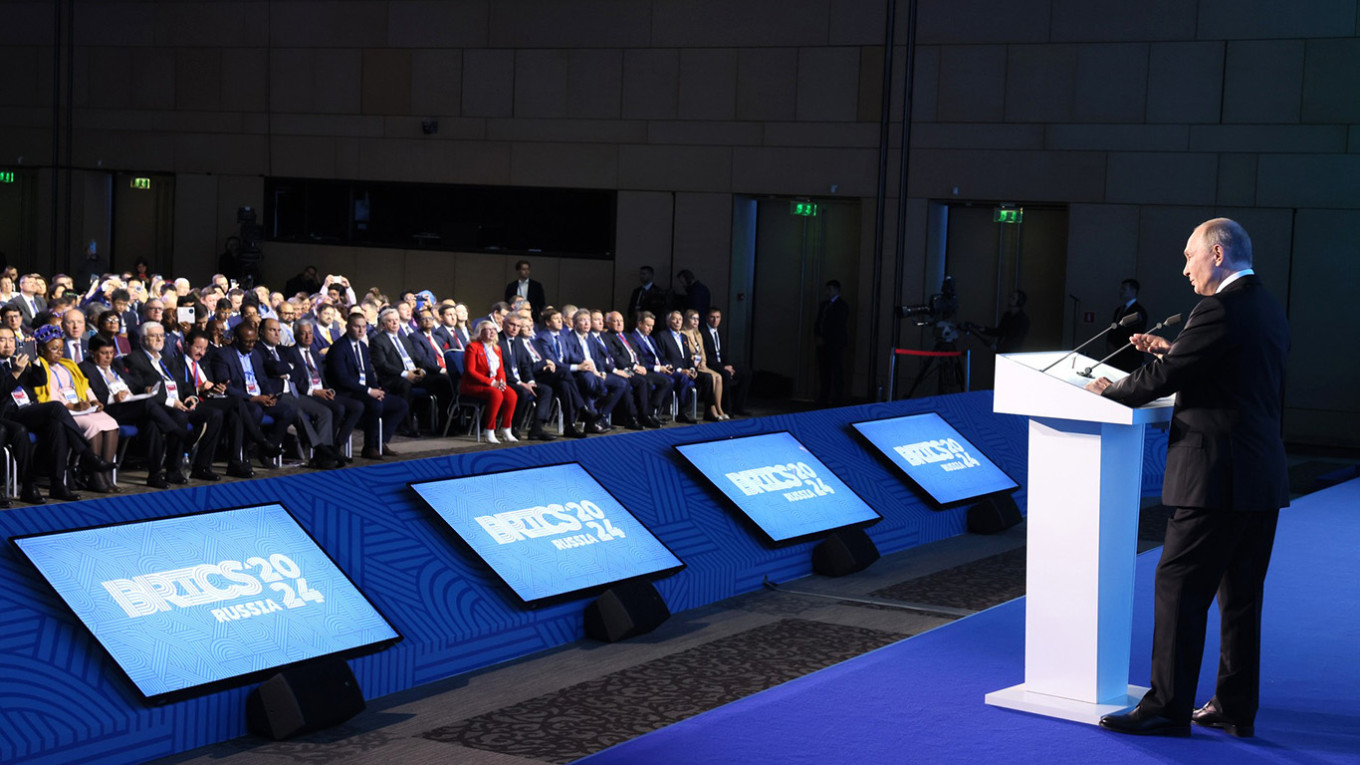
Turkey made a formal bid for BRICS membership last month, according to insider sources cited by Bloomberg. For Ankara, joining the alliance means keeping in step with the shifting of the geopolitical center of gravity towards the Global South, but it is also a natural step in its long-standing balancing act between the West and Russia.
“In addition to building trade opportunities, membership could make Ankara’s Western allies pay more attention to its domestic needs. At the very least, Ankara hopes they will soften their policy of cold-shouldering the Turkish capital,” Aslı Aydıntaşbaş, a fellow at the European Council on Foreign Relations, wrote last month.
Several of Russia’s post-Soviet allies, including Azerbaijan and Belarus, have also applied for BRICS membership. But Kazakhstan, Central Asia’s largest economy, is choosing to “abstain” from joining the alliance, President Kassym-Jomart Tokayev’s spokesman said last week — a decision that the Kremlin vowed to “respect.”
Unlike Saudi Arabia’s Crown Prince, Tokayev is still expected in Kazan on Tuesday.
Serbian President Aleksandar Vucic, who is also treading carefully between Russia and the West in choosing his country’s foreign policy course, has kept observers and political partners on edge by vowing to make a last-minute decision on participation in the summit on Monday.
"If I say I'm going to Kazan, it will signal the end of Serbia's European path. If I say something else, they'll claim I've betrayed the Russians," Vucic said last week.
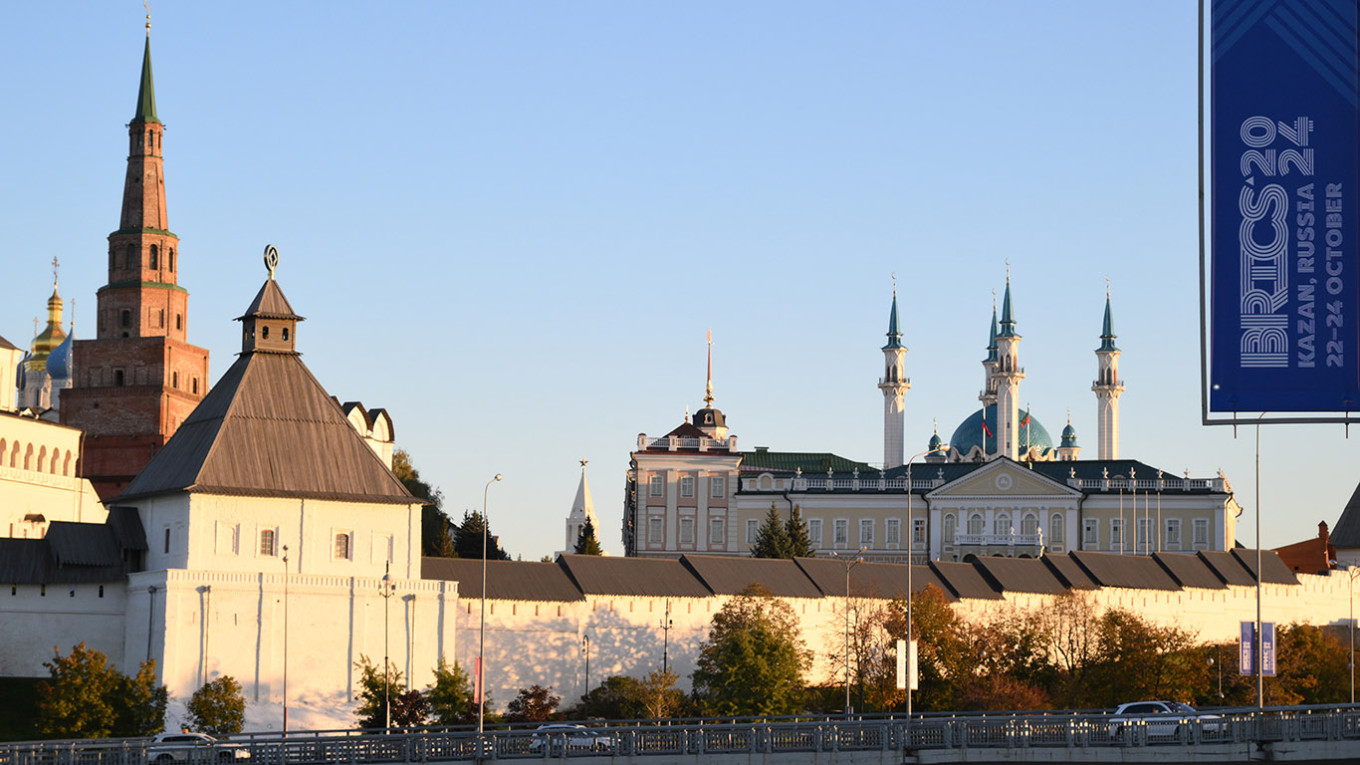
Putin aide Ushakov admitted earlier this month that BRICS+ members have “divergent views” on whether the alliance should be expanded further, noting that Russia backs an alternate enlargement route — the introduction of an official “partner state” status.
While Erdogan’s attendance will be closely watched by many in the West, his visit might also be the one most anticipated by residents of Tatarstan, home to one of the world’s largest Turkic ethnic groups, the Tatars.
Yet, the de facto leader of all Turkic Muslims is unlikely to encounter any ordinary residents of Kazan on his trip, as Tatarstan’s authorities have introduced a slew of restrictions aimed at minimizing their presence in the capital.
All schools and universities in Kazan have switched to remote learning until Oct. 27.
Tatarstan’s major universities, including Kazan Federal University and Kazan National Research Technical University, forcibly removed all students from their dormitories, which will be used to house summit participants and security forces deployed to Kazan from across Russia, according to the independent local news outlet Groza.
All state employees will be on mandatory paid leave during the summit, while private companies were also encouraged to introduce similar measures or switch to remote work during the summit.
Libraries, museums and entertainment venues across Kazan will also be closed and residents of the city’s central districts were advised to carry identity documents in public.
Kazan residents also reported being denied appointments at state-run clinics on the days of the BRICS summit.
Moscow and Tatarstan spent more than 8 billion rubles ($80 million) on city renovation projects in the lead-up to the summit, according to Kazan Mayor Ilsur Metshin.
And owners of major hotels in Kazan were forced to invest more than 1 billion rubles ($10 million) to build presidential suites, according to information obtained by local news outlet Business Online.
But for the Kremlin, the upcoming summit is a priceless opportunity to achieve a major image boost as it seeks to reassert its leadership in the Global South and shake off the global pariah status it earned by invading Ukraine.
The summit, according to Putin’s aide Ushakov, will begin with a member-only meeting on “the most pressing conflict situations around the world,” including the “crisis in Ukraine.”
And members are also expected to weigh in on Russia’s proposed alternative to Western-led financial systems.
“Putin will be able to claim that despite the West’s best efforts to isolate Russia after its full-scale invasion of Ukraine, his country not only is far from being an international pariah but also is now a pivotal member of a dynamic group that will shape the future of the international order,” analysts Alexander Gabuev and Oliver Stuenkel said in a recent piece published in Foreign Affairs.
A Message from The Moscow Times:
Dear readers,
We are facing unprecedented challenges. Russia's Prosecutor General's Office has designated The Moscow Times as an "undesirable" organization, criminalizing our work and putting our staff at risk of prosecution. This follows our earlier unjust labeling as a "foreign agent."
These actions are direct attempts to silence independent journalism in Russia. The authorities claim our work "discredits the decisions of the Russian leadership." We see things differently: we strive to provide accurate, unbiased reporting on Russia.
We, the journalists of The Moscow Times, refuse to be silenced. But to continue our work, we need your help.
Your support, no matter how small, makes a world of difference. If you can, please support us monthly starting from just $2. It's quick to set up, and every contribution makes a significant impact.
By supporting The Moscow Times, you're defending open, independent journalism in the face of repression. Thank you for standing with us.
Remind me later.



